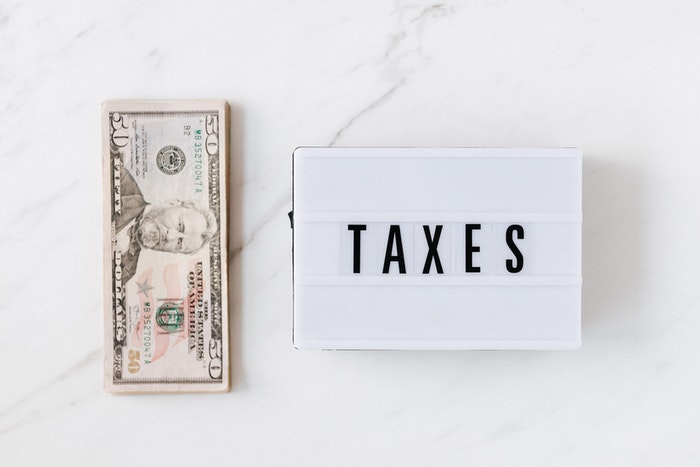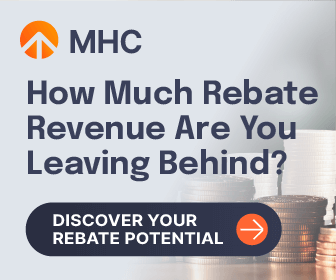Controllers, CFOs, finance executives, and just about anyone who manages tax compliance for their business might benefit from learning about Streamlined Sales Tax (SST), a state-run program designed for businesses to offset the costs and simplify the process of managing sales tax. Even though SST has been in existence since 2000 and nearly half of U.S. states are members, many people are unaware of the program or know how to participate in it.
What is Streamlined Sales Tax?
SST was spearheaded by South Dakota and quickly grew into a cooperative effort between 24 state governments and the broader business community. One of its primary goals is to encourage businesses with sales tax obligations to register with the appropriate jurisdictions and simplify the complex and manually intensive process of managing state sales tax. The program also encourages state governments to simplify their sales tax rules and regulations. Businesses that join the program can offset the expense of sales tax returns preparation, filing, remittance, and tax rate calculation by using an automated tax software system, otherwise known as a Certified Service Provider (CSP).
To date, the following states participate: Arkansas, Georgia, Indiana, Iowa, Kansas, Kentucky, Michigan, Minnesota, Nebraska, Nevada, New Jersey, North Carolina, North Dakota, Ohio, Oklahoma, Pennsylvania,* Rhode Island, South Dakota, Tennessee, Utah, Vermont, Washington, West Virginia, Wisconsin, and Wyoming.
Who is SST for?
SST is largely tailored for businesses that file and remit in multiple states where they have no physical presence but have created tax obligations through other means, like having economic nexus. For businesses with offices or employees located throughout most of the U.S., SST is probably not a good option, but for businesses that sell throughout the U.S. and have limited offices or employees residing in multiple locations or other nexus triggers, SST might be an ideal program.
The benefits of participating in SST include:
- No registration fees
- No tax calculation fees
- No monthly filing fees
- Audit protection
- Fewer manual (paper-based) processes
There are specific criteria businesses need to meet in order to qualify for the program, but at a high level, SST encourages the following types of businesses to apply:
- Those with no fixed office or place of business in a member state for more than 30 days
- Those that pay no more than $50,000 in property in a member state
- Those with less than $50,000 in payroll and 25% of total property in a member state
Why SST matters now more than ever
SST may not have gotten a lot of attention during its inception, but after the Supreme Court ruled in favor of the state in South Dakota v. Wayfair, Inc. (June 21, 2018), states were granted the authority to impose tax obligations on businesses with no physical presence in a state, and instead base tax obligations on the volume of sales into a state. For a lot of businesses, the outcome of that ruling meant they had to file and register in many locations they’d never considered. Managing tax compliance in a handful of states might not be a big ordeal for most accounting departments, but when you increase the volume of filing requirements and other compliance tasks 5x, many businesses struggle to keep up. The new reality for a controller made the benefits of SST far more advantageous.
Businesses that join the program have the option to incorporate automation technology into their accounting operations. By using automated tax software from a Certified Service Provider (CSP) like Avalara, many of the tedious and time-consuming tasks, like researching tax rates across thousands of jurisdictions, tracking filing deadlines in every state, and manually remitting payments are no longer necessary.
Why are some states part of SST and others not?
In the same way not every business is right for SST, not every state is right for the program either. For some, state and local governments would have to shift their tax operations dramatically. At a minimum, SST member states are required to have:
- A central, electronic registration system
- Consumer privacy protection
- Simplified administration of exemptions
- Simplified state and local tax rates
- Simplified tax remittances and returns
- State administration of sales and use tax collections (no self-collecting local jurisdictions)
- Uniform state and local tax bases
- Uniform sourcing rules for all taxable transactions
- Uniform tax base definitions and rules
Working with a CSP
One of the largest benefits of working with a CSP is offloading the high cost and manual steps associated with sales tax compliance. CSPs also ensure a high level of accuracy in tax calculations across more than 13,000 sales tax jurisdictions in the U.S.
As one of the first CSPs certified by SST, Avalara must meet rigorous standards for data processing and management of sales tax information. Avalara can also help businesses cover other critical aspects of sales tax compliance, from determining sales tax nexus obligations and assisting in audits by state and local tax authorities.
Learn more about working with Avalara in SST states.
*Pennsylvania independently operates a state-run program similar to SST.

Morgan Coleman, senior manager of Web Content Strategy at Avalara and Tax Desk contributor, writes about sales tax laws and the challenges compliance can pose to accounting and business professionals.




